Sukhe Kale chane/ Dry black chickpeas recipe
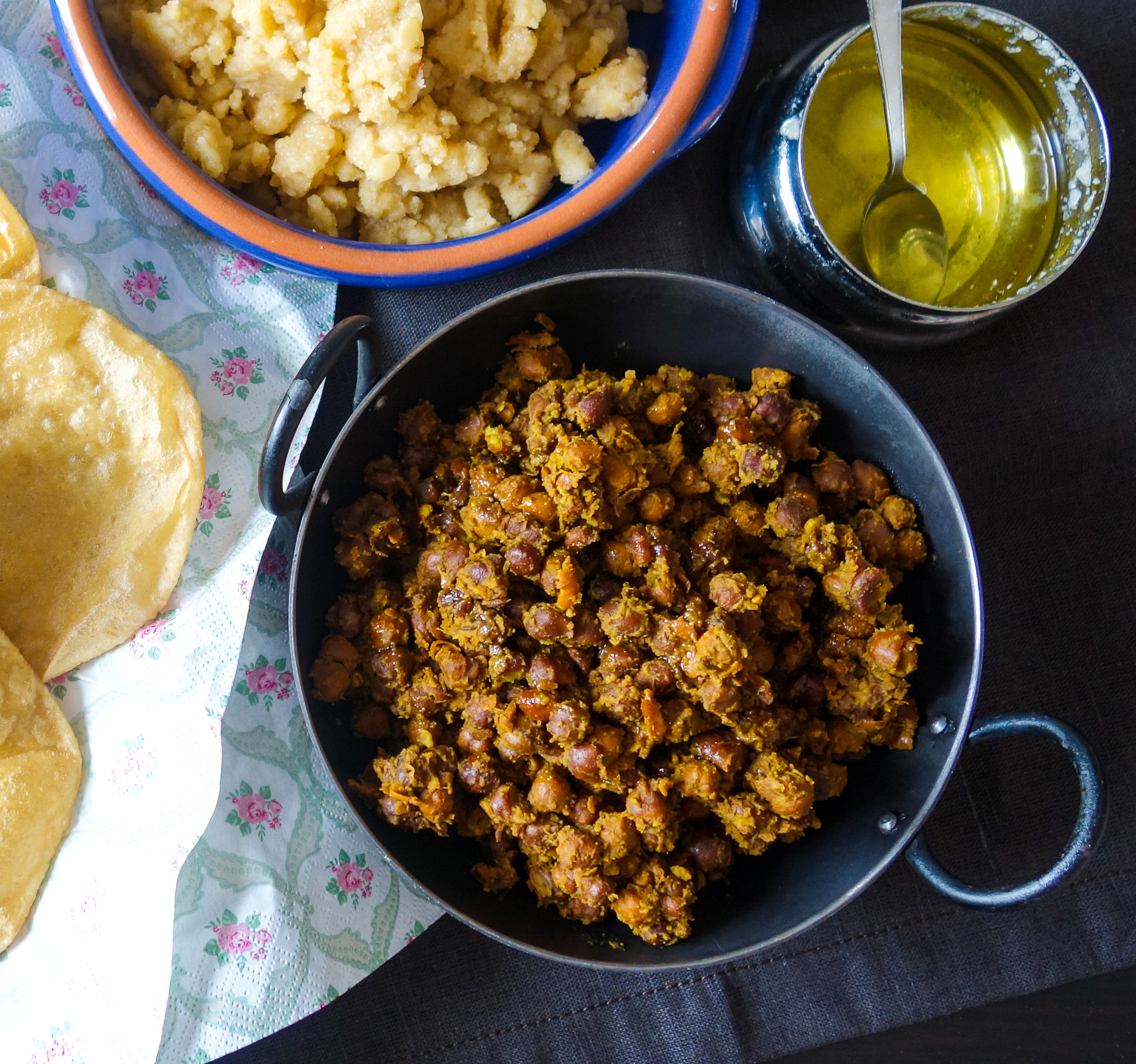
Sukhe Kale chane / Dry black chickpeas recipe, that I’m sharing here today , is the one , that my mum cooks for ashtami Prasad (offering to goddess ), and now I also follow the same. This recipe is cooked, using very few ingredients which are had during ashtami. It does not contain any onions, garlic, or tomatoes.
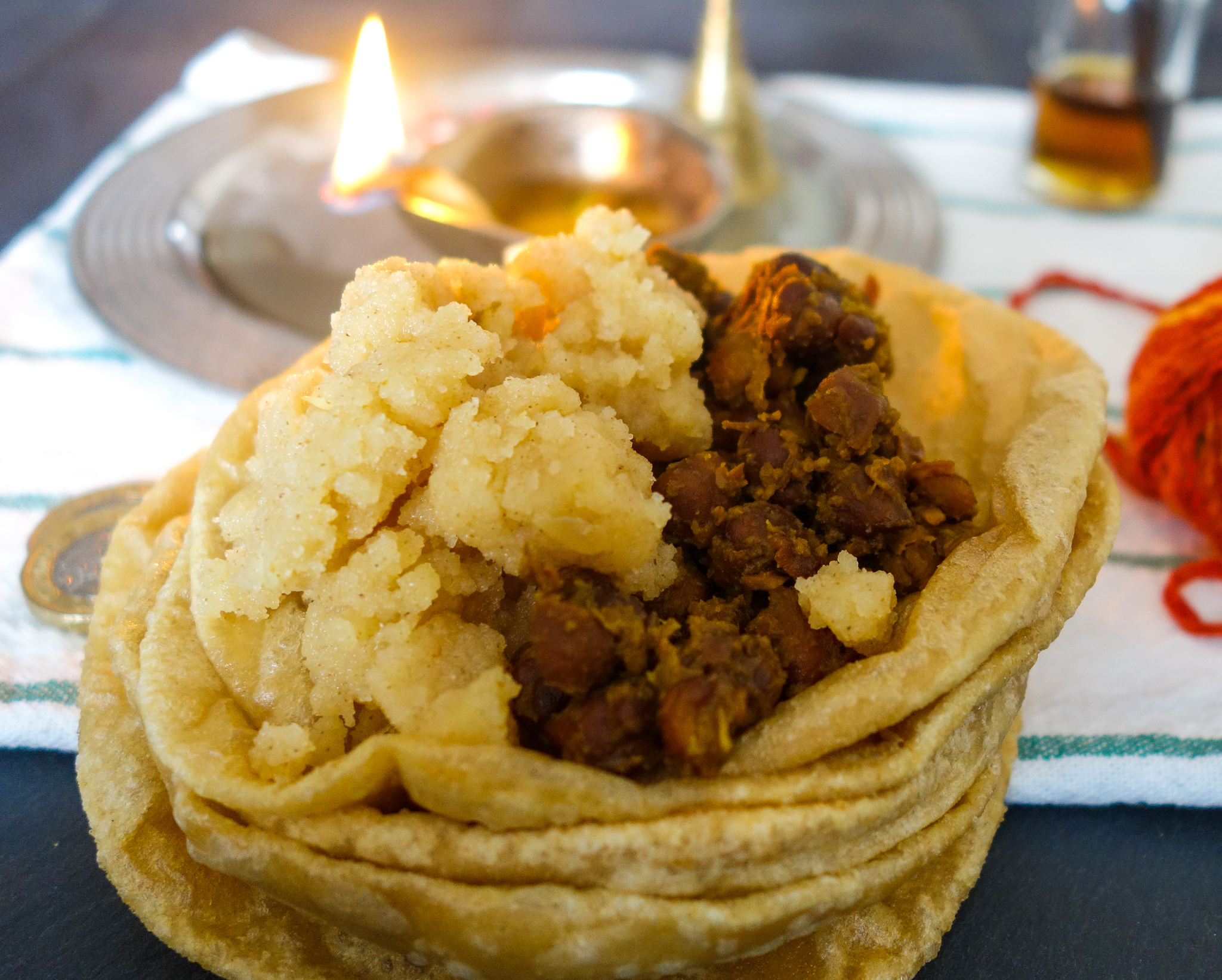
I cook these early in the morning on the day of ashtami, as I make prasad. This goes perfect with pooris (fried puffy Indian bread), and halwa (semolina pudding), that is the offering to goddess Durga on this day.
This prasad (offering ) is the regular meal, prepared in most of the households, to open the navratri fast. It is offered to goddess Durga, and then served to little girls along with some gifts, as these little girls are considered the avatar or embodiment of goddess Durga.
Recipe details(Sukhe Kale chane/ Dry black chickpeas)
To cook these ashtami special black chana, you would need black chickpeas (kale chane),mustard oil (or oil of your preference), Hing (asafoetida), Jeera (cumin seeds), Grated ginger (or ginger paste),salt, red chilli powder ,turmeric powder (haldi), amchoor (dry mango powder), and garam masala.
I cook all my pulses ,beans, legumes in a pressure cooker as it saves a lot of time.If you are cooking in a pan, it takes almost double the time or even more, to get the pulses cooked.
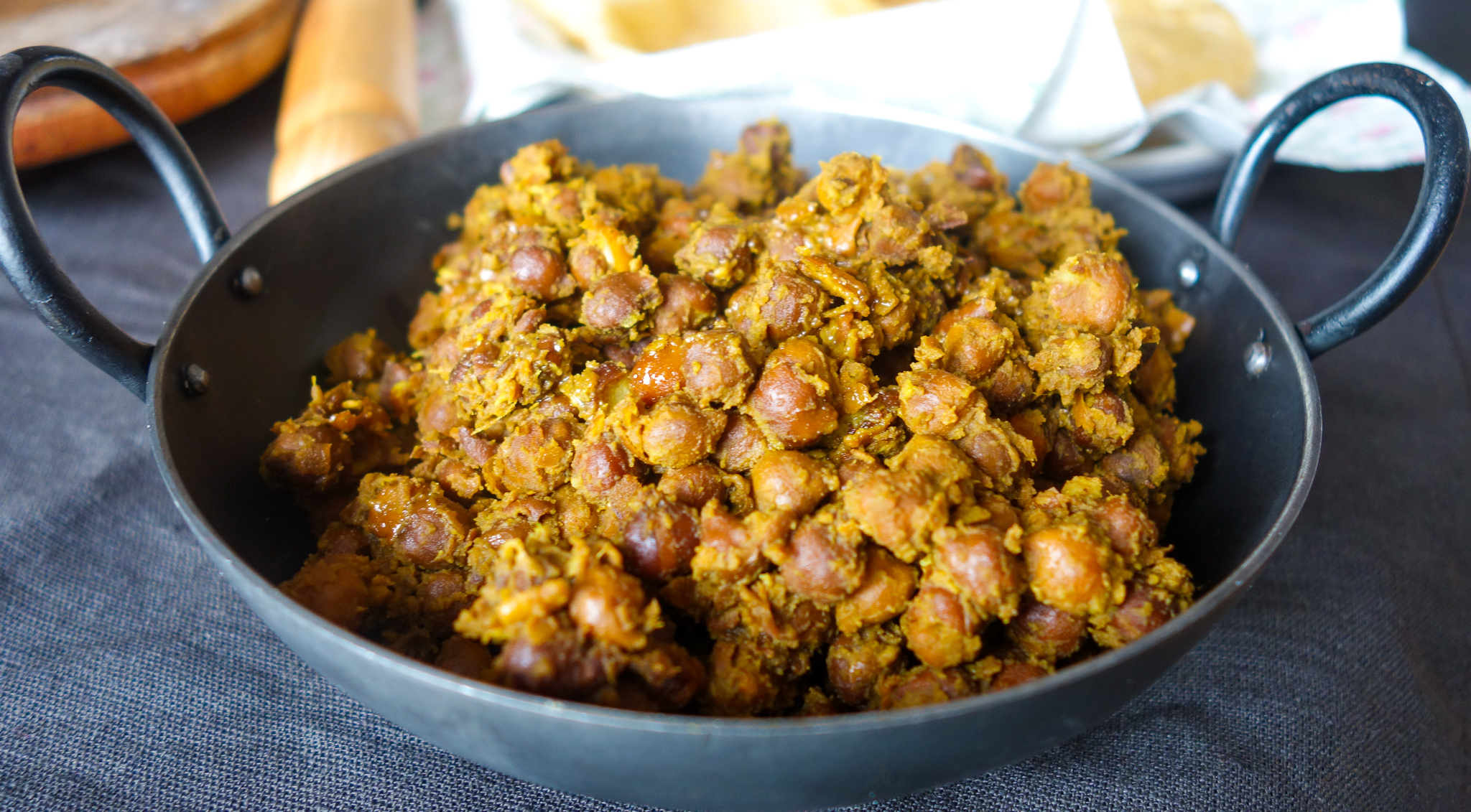

Soak the black chickpeas overnight in enough water.
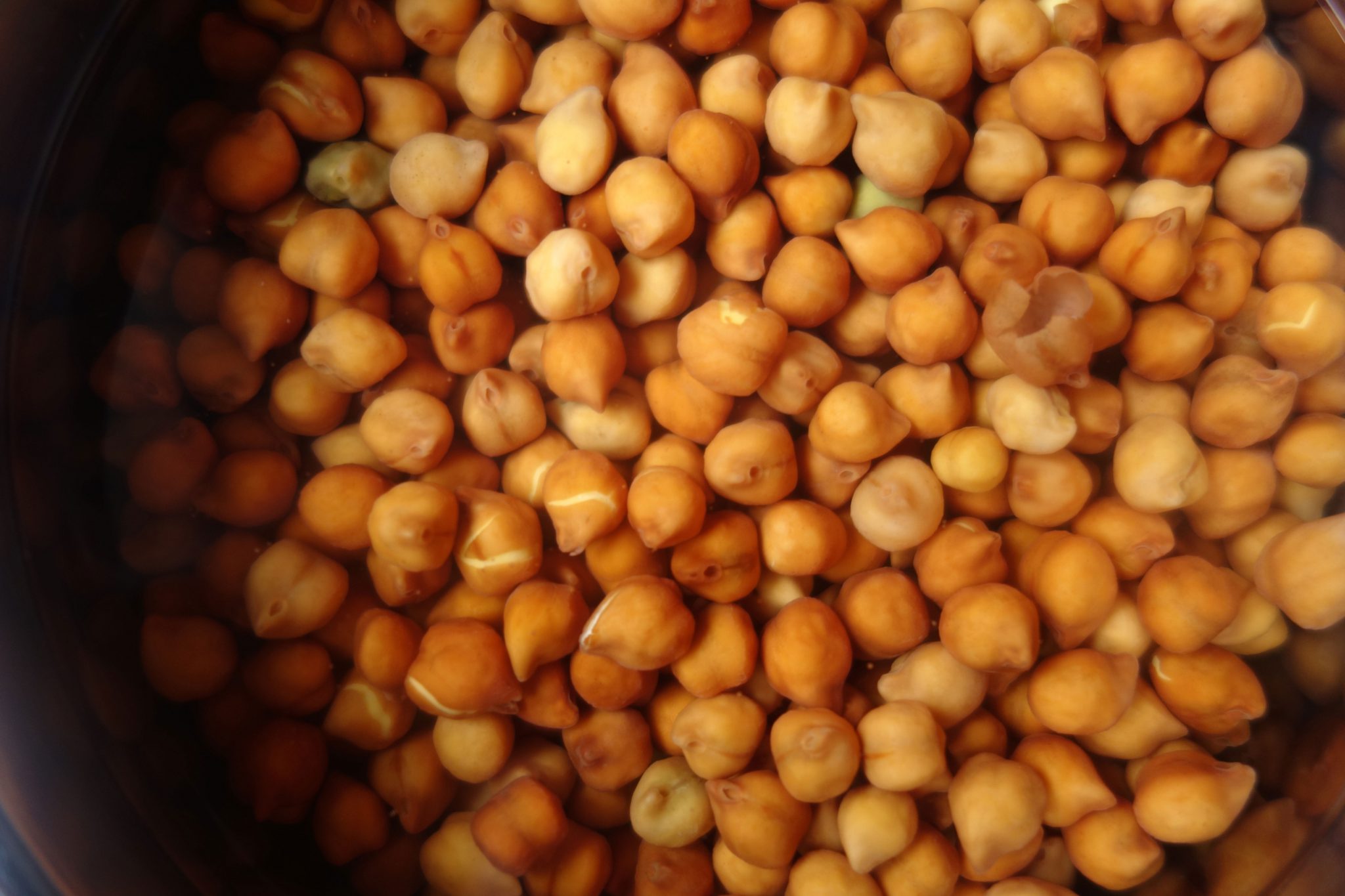

When cooking in a pressure cooker heat mustard oil to a smoking point.Add Hing(asafoetida) , jeera (cumin seeds), ginger (grated or paste), and sautè till the raw aroma of ginger goes away.
Add salt, red chilli powder, turmeric powder.Give it a good mix.Add water- just an inch over the chane (black chickpeas), and pressure cook for about 35-40 minutes, on medium heat.
Turn off the heat after 40 minutes, and let the pressure settle.
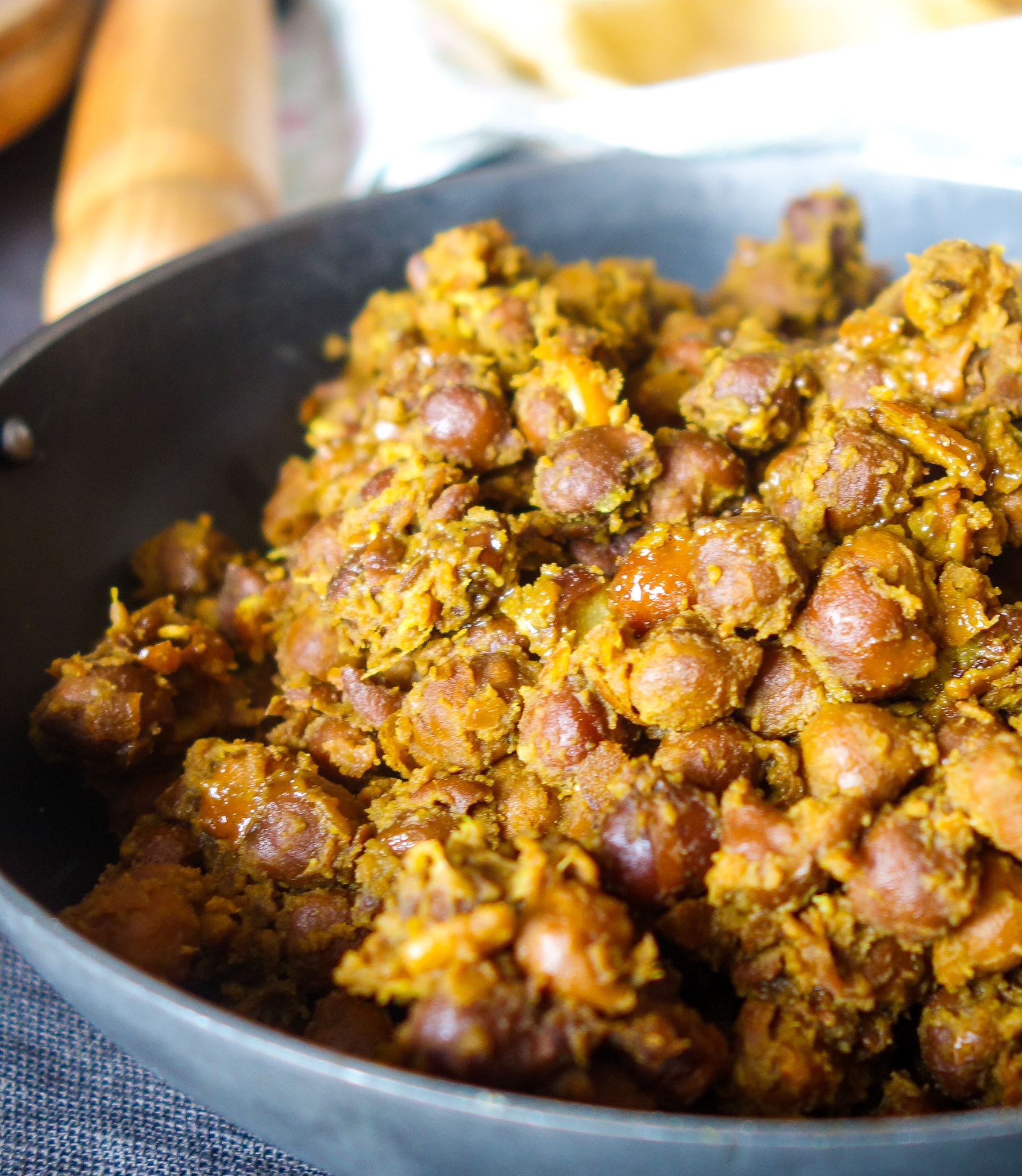

Once the pressure is settled, open the cooker, and give the chanas a stir. Open the lid and let cook for another 10-12 minutes , till the water evaporates. Once the chanas have dried, add amchoor, a little garam masala and mix well.
Ashtami chanas are ready. Serve them hot with pooris, with lots of halwa, and little love.
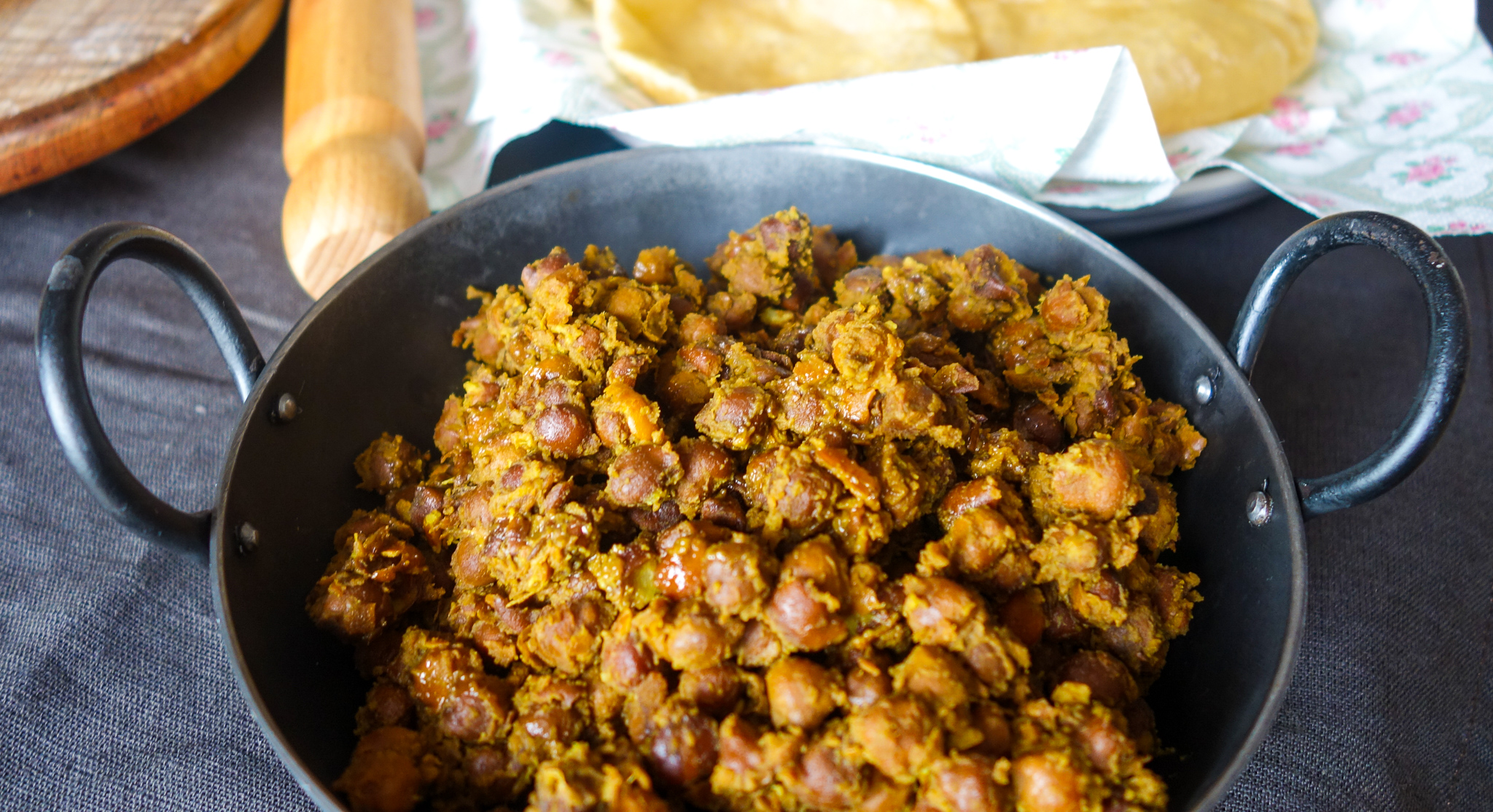




If you try this recipe, I will be happy to know! Leave a comment ,your suggestions, questions and feedback, in the comments section below.I will be happy to revert.
More ashtami recipes are here- Suji halwa
Vrat/ fasting recipes are here- Samo seeds kheer, pumpkin halwa.
Subscribe to the blog to get regular updates!
Check the Black chickpea / Kale chane curry recipe is here.
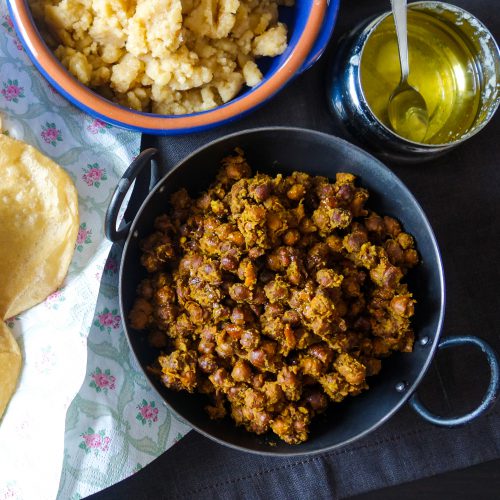

Sukha kala chana/ dry black chickpeas recipe
Ingredients
- 1 cup kale chane / black chickpeas soaked overnight
- 2 tsp mustard oil or any oil of your preference
- a pinch of hing (asafoetida)
- 1 tsp jeera (cumin seeds)
- 1 1/2 tbsp grated ginger or ginger paste
- salt as per taste
- 1 tsp red chilli powder
- 1/2 tsp turmeric powder (haldi)
- 1 tsp amchoor powder (dry mango powder)
- 1/2 tsp garam masala
- 2 cups water
Instructions
- In a pressure cooker heat mustard oil to a smoking point.Add Hing(asafoetida) , jeera (cumin seeds), ginger (grated or paste), and saute till the raw aroma of ginger goes away.
- Add salt, red chilli powder, turmeric powder.Give it a good mix.
- Add water- just an inch over the chane (black chickpeas)., and pressure cook for about 35-40 minutes, on medium heat.
- Turn off the heat after 40 minutes, and let the pressure settle
- Once the pressure is settled, open the cooker, and give the chana a stir. Open the lid and let simmer for another 10minutes , till the water evaporates.
- Once the chana have dried, add amchoor, a little garam masala and mix well.
- Dry chickpeas are ready to be served for ashtami prasad, with pooris, halwa
Notes
Recipe Notes-
- Mustard oil is most often heated in the pan, with no other ingredients, until it reaches a temperature where the first wisps of smoke appear (about 480°F/250°C). Immediately take it off the heat and allow to cool to a more reasonable frying temperature (around 360°F/180°C) before adding other ingredients. This procedure removes the acrid taste of the raw oil and renders it quite pleasant.
